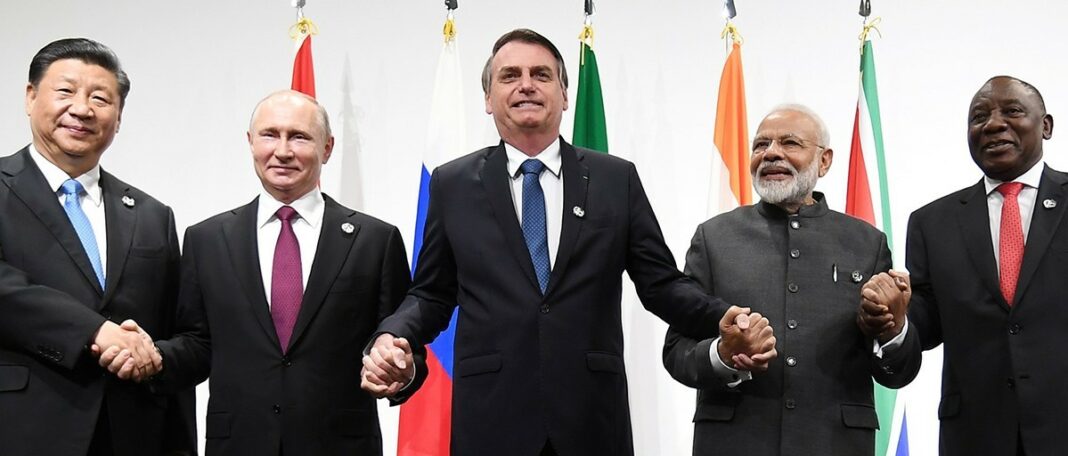Of course, the United States is using its go-to newspaper, the New York Times, to downplay its anxiety about the rise of BRICS and their push to rise against Western economic powers. In an attempt to pacify US citizens, the following article assures Americans that their exceptionalism remains strong and their divide and conquer strategies are still at work around the world.
What is BRICS, which countries want to join and why?
The article entitled, “American Power Just Took a Big Hit,” is the latest pacifist propaganda to reassure American exceptionalism.
“For more than a decade, the United States mostly ignored BRICS. The grouping, formed by Brazil, Russia, India, China and South Africa, rarely registered on Washington’s radar. When it did, the impulse — as shown by Jake Sullivan, the national security adviser, recently stressing that the coalition is not “some kind of geopolitical rival” — was to downplay the group’s significance. Western commentators, for their part, largely painted BRICS as either a sign of Chinese attempts to dominate the global south or little more than a talking shop. Some even called for its dissolution.
Such complacency looks less tenable now. At a summit in Johannesburg last week, the group invited six global south states — Argentina, Egypt, Ethiopia, Iran, Saudi Arabia and the United Arab Emirates — to join its ranks. In the aftermath of the announcement, indifference gave way to surprise, even anxiety. Yet there’s no need for alarm. BRICS will never run the world or replace the U.S.-led international system.
It would be a mistake, though, to dismiss its importance. After all, any club with such a long waiting list — in this case, nearly 20 nations — is probably doing something right. BRICS’s expansion is an unmistakable marker of many countries’ dissatisfaction with the global order and of their ambition to improve their place within it. For America, whose grip on global dominance is weakening, it amounts to a subtly significant challenge — and an opportunity.
Since the Soviet Union’s collapse in 1991 and despite the disastrous interventions in Iraq and Afghanistan, America has been able to portray itself as speaking for the values of freedom and democracy everywhere. In fact, the disproportionate sway Washington holds over the articulation of global norms is a major source of its power. It’s not for nothing that the Biden administration repeatedly claims that the world is divided between rules-following democracies and rules-flouting autocracies, with the United States at the head of the former.
This “democracy vs. autocracy” framework has already been partly discredited by Washington’s own embrace of authoritarian governments. A bigger BRICS would deal it another blow from a different angle. Of the 11 states that will make up the expanded group, four can be said to be democracies, four are autocracies, two are monarchies and another a theocracy. It is further evidence that a country’s political system is a poor indicator of how it frames its interests and with whom it decides to build a coalition.
What’s more, the expanded group will include two pairs of fierce rivals — India and China, Saudi Arabia and Iran — as well as the acrimonious pairing of Egypt and Ethiopia. Shared BRICS membership alone will not solve the serious problems between these adversaries. But it will create unique opportunities for direct, two-way conversations between states that dislike each other in a relatively safe multilateral environment. Washington has historically found advantage in exploiting divisions for its own ends, most notably in the Middle East. By reducing the distrust between countries, BRICS could help counter this unhealthy cycle.
To perpetuate its primacy, Washington also tends to divide the world into regions. U.S. allies and partners, in the global south especially, are typically urged to counter a U.S. adversary or forge deeper ties with local U.S. partners in their region. India and the Philippines are encouraged to counter China, for example, while the Gulf States are nudged to focus on Iran and build links with Israel.
This divide-and-conquer approach acts to limit middle powers’ horizons to their own regions. More than anything, the growing attraction of BRICS is a signal that American global dominance is waning. America, facing its own intractable domestic problems, should view BRICS expansion less as a threat and more as an opportunity. It offers a chance for the United States not only to relearn the practice of cooperation but also to let go some of the distant burdens and notions of exceptionalism that do not serve its national interest.”
DISCLAIMER: The content of Pro Liberation is firmly opinionated and is not meant to be interpreted as official news. We glean facts and quotes from mainstream news websites and abridge its meaning for readers to relate. We do not indulge in misinformation, conspiracy theories, or false doctrine but choose to express our right to free speech as citizens of this country and free born under God the Creator. We represent Nu Life Alliance Inc. a non-profit organization in the battle for social and economic justice. Donate to our cause at the following link. DONATE














